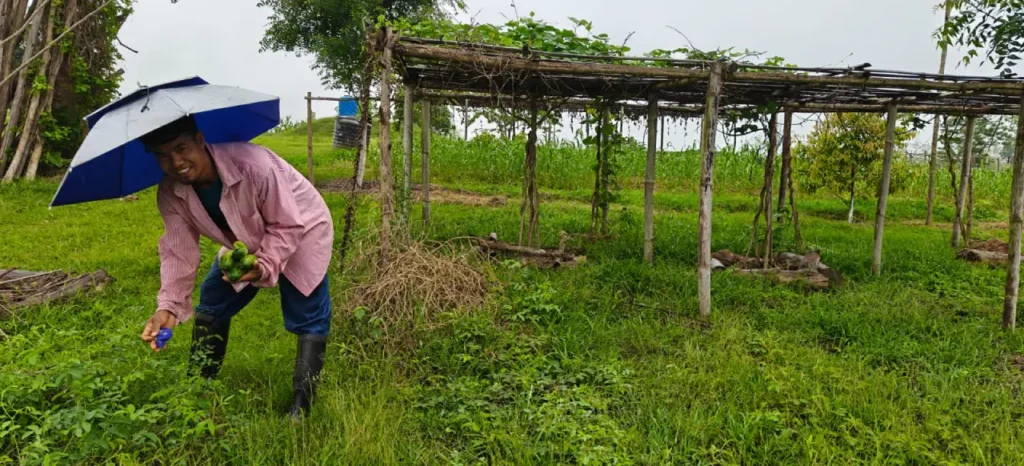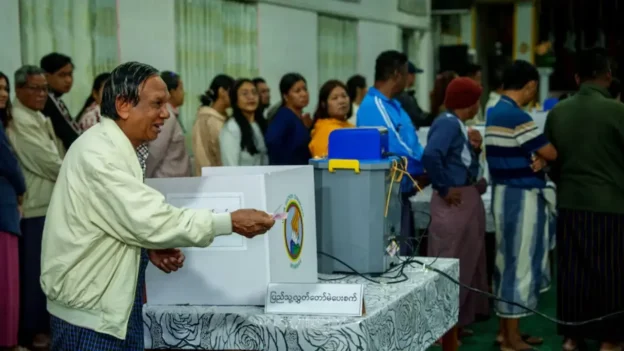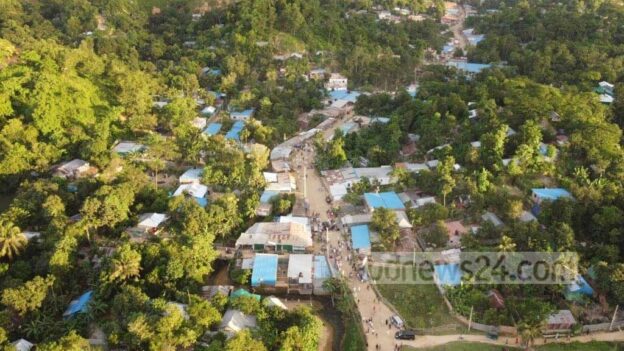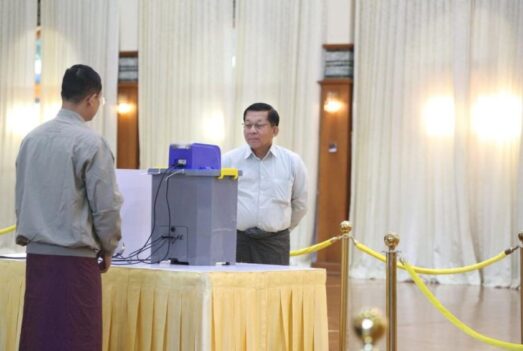For nearly half a century, the borderlands between Assam and Nagaland have been etched with the lines of conflict and mistrust. But now, in a remarkable turn of events, a young man from Nagaland is cultivating not just crops, but also a sense of unity in this historically volatile region. Lungaithui Malangmei, a driven youth from Dimapur, has emerged as an unlikely catalyst for harmony through his innovative sustainable farming practices in Balijan, a bordering area within Assam’s Karbi Anglong district.
“Nowadays, people come to see my farm and also practice my model in their land,” Lungaithui shares with a quiet confidence amidst the lush greenery of his farm. “They took it as the means of livelihood and health security for them.” His enthusiasm is palpable, a stark contrast to the region’s troubled past. After honing his skills through higher training on sustainable agriculture in Asian Rural Institute Japan in 2022, Lungaithui embarked on his agricultural endeavor in Balijan under the aegis of the Cinthoor Foundation in 2021.
Karbi Anglong, an area under the constitutional safeguards of the 6th Schedule due to its indigenous Karbi and Dimasa population, was once synonymous with unrest. Following independence, the demand for a separate state fueled the rise of numerous insurgent organizations, including the United Peoples Democratic Solidarity (UPDS), which for two decades sought a sovereign nation. Over fifteen such groups operated in the region, each claiming to protect the political rights of their respective tribal communities. However, persistent efforts from various stakeholders eventually led to dialogue, with many former insurgent leaders now holding public office within the Karbi Anglong Autonomous District Council.
Adding another layer of complexity to the region’s socio-political landscape is the enduring border dispute between Assam and Nagaland. The Merapani and Dhansiri areas remain flashpoints, impacting the lives of communities residing in the bordering villages. The presence of significant oil and natural gas reserves, particularly in the Dhansiri river basin, further complicates the issue. Separatist groups like the NSCN and its factions have also laid claim to parts of the Karbi Anglong Autonomous Council’s territory as part of their envisioned Nagalim. This protracted conflict has tragically claimed the lives of many, including government officials from Assam.
Against this backdrop of historical tensions and unresolved border disputes, the arrival of Lungaithui Malangmei is a significant development. His decision to establish his farm in the foothills of Karbi Anglong has inadvertently fostered a unique form of cross-border cooperation. While visiting the farm developed by Through his dedicated work, he has managed to draw the attention of communities from both Assam and Nagaland, igniting a shared interest in the potential of sustainable farming.
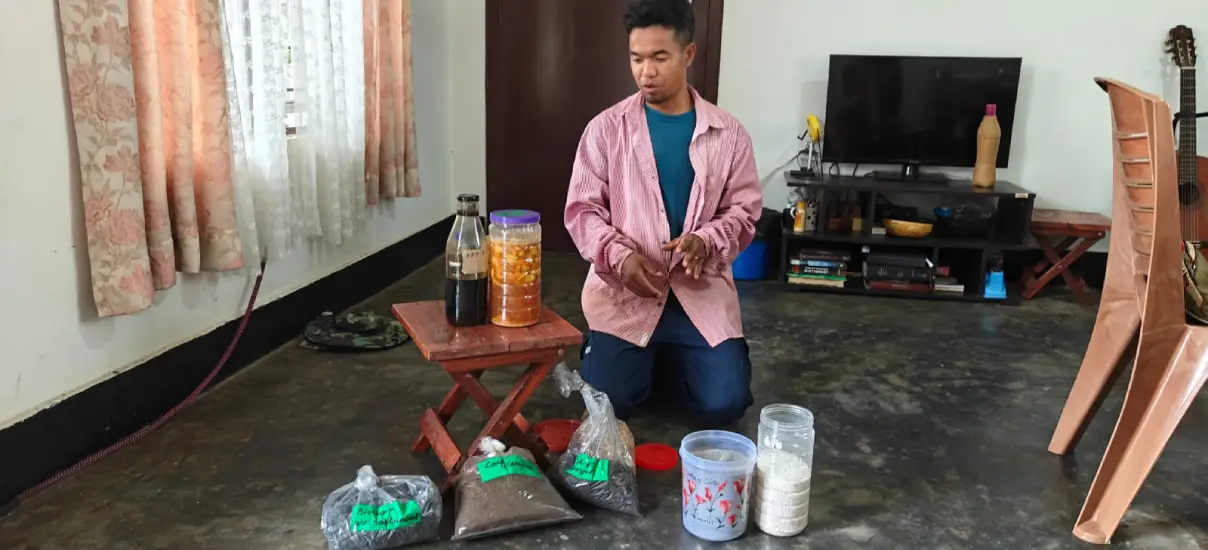
Lungaithui’s farm has become a living testament to the unifying power of a common purpose. Individuals from both sides of the contentious border are now visiting his fields, eager to learn and adopt his sustainable practices. This exchange of knowledge and the shared pursuit of livelihood and food security are subtly weaving a new narrative in a region long defined by division.
While the deep-seated political issues and border disputes remain unresolved, Lungaithui Malangmei’s initiative offers a glimmer of hope. His farm stands as a symbol of resilience and a testament to the potential of grassroots efforts to bridge divides. In a land scarred by conflict, this Naga youth is cultivating not just food, but also the seeds of understanding and cooperation, one sustainable harvest at a time.
Explaining the objective behind starting the farm at Balijan under the Chinthoor Foundation, Ms. Akaina Gonmei, the chairperson of the organization, shared that the land was purchased decades ago by her parents with the hope that their children would one day engage in farming activities together. Although over time all her siblings pursued their own professional paths, they never abandoned the original idea. One of her sisters, who currently resides in Japan, helped establish a connection with prestigious institutions like the Asian Rural Institute in Japan.
Motivated by a desire to bring about change in the field of agriculture, a young man named Lungaithui was sent to the Asian Rural Institute for training in 2022. Today, through his exceptional commitment, he is bringing new hope by building a unique and sustainable farm in Balijan, where even members of the local Karbi community from this border district are now actively participating.
Speaking to The Borderlens, Ms. Gonmei said, “Through this intervention, we are not only promoting agriculture but also trying to build solidarity between communities in both states—Nagaland and Assam—so that they can work together to address the looming challenge of food insecurity in the near future.” To support this vision, the Chinthoor Foundation has been organizing training programmes on sustainable farming as well as health camps for communities living along the border.
We met Mr Lungaithui on his farm at Balijan on May 15 and had a brief discussion about his recent work. He said that after returning from Japan and having comprehensive training at Asian Rural Institute, he could get a fellowship from ActionAid Association (India), which has helped him concentrate on his mission and engage the communities.
Mr Lungaithui explained to The Borderlens, “ Our objectives are to reach the surrounding people to motivate them the technique of organic sustainable way of farming, to do long-term farming without using chemical fertilizers.” Again, is this initiative helps in creating the solidarity among the communities residing in the bordering area of Assam and Nagaland ?
He said, “In our local context, we have lots of resources but we don’t have an idea how to utilize in farming. In farming no racism, no religion we all eat the same food what we get in market.”
“It will not be an easy task for me to convince the farmer who already depends on chemical fertilizer to grow their vegetables. I hope that seeing what I am practicing on my farm will be more impactful for them to understand.” He added.
Lungaithui’s words reflect a quiet but profound conviction—that farming can become common ground in more ways than one. His journey from training in Japan to building a farm that inspires both Karbi and Naga communities shows how shared struggles for food and livelihood can overcome deep-rooted divides. As more people witness his work and adopt sustainable practices, the farm at Balijan stands not only as a model of organic agriculture but as a small but meaningful step toward healing and solidarity in a region too often defined by its borders.

